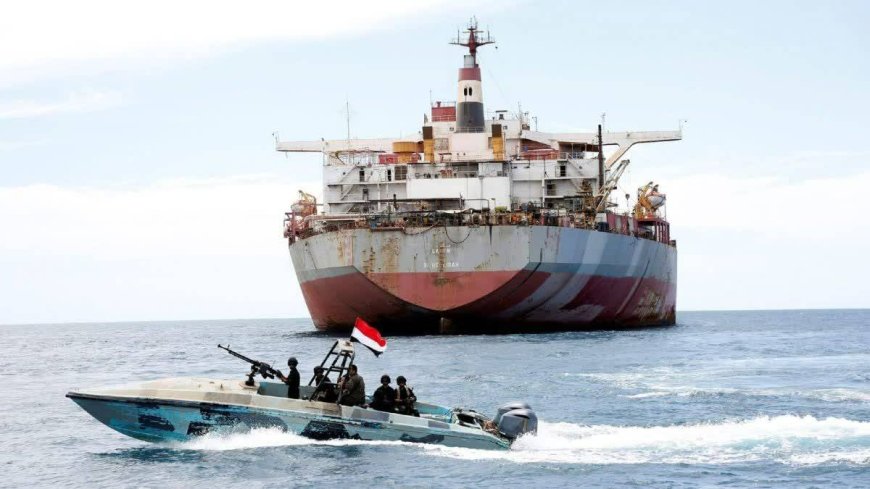Facing the Abyss: The Zionist Regime's Desperate Moves Against the Yemeni Maritime Blockade
In a recent turn of events, media outlets within the Zionist regime have brought to light the regime's endeavors to circumvent the sea blockade enforced by the Iran-led Axis of Resistance in the preceding months—a development that underscores the pivotal nature of this issue for the Netanyahu administration. Following the events of October 7 and the subsequent aggression by the Zionist regime, the attacks against vessels bound for Israeli ports in the Red Sea, spearheaded by Yemen's Ansarullah movement, embarked on a fresh initiative.

In response to the catastrophic civilian casualties in the Gaza Strip, a communication blockade was imposed on the waterways leading to the occupied territories in the Red Sea. Notably, these restrictions exclusively target vessels tasked with supplying and supporting the Zionist regime while permitting unimpeded passage for nations unrelated to this regime. Ansarallah's successful military operation revealed a meticulously crafted plan by the Axis of Resistance to strike at the vested interests of Western nations, particularly the Zionist regime. To stymie the regime's apparatus of violence, resolute action must be taken to disrupt the economic and strategic interests of this contentious entity.
Revealed were the novel strategies adopted by the Zionist regime to extricate itself from this predicament. Notably, grappling with an economic crisis in recent months stemming from challenges in meeting essential requirements exacerbated by the aftermath of the October 7 operation, the regime found itself contemplating a unique solution. Faced with escalating prices of vital commodities within the occupied territories, the regime envisioned the acquisition of a designated island in Cyprus. The proposed port construction on this island aims to assuage its woes and ameliorate the crisis of provisioning its populace.
Central to the Western agenda is the neutralization of the axis of resistance to curb their influence. The successful establishment of a port in Cyprus by the Zionist regime would nullify the threat posed by Ansarallah and render the Red Sea's resistance axis impotent. Drawing parallels to the U.S. strategy in Iraq, which mitigated attacks on Zionist and American targets by the Axis of Resistance through diplomatic overtures, the construction of a bespoke port in Cyprus serves multiple objectives. It not only defangs Hezbollah, preempting potential conflict escalation, but also offers a respite for the Zionist regime in the event of a large-scale confrontation.
Navigating internal strife, Netanyahu has grappled with mounting public discontent fueled by legal entanglements and a lackluster response to the Palestinian resistance in Gaza. In a bid to assuage public sentiment, the regime has devised scenarios aimed at pacifying the populace, with economic stabilization and targeted incursions against Rafah featuring prominently, as Netanyahu's political future hinges on his adept handling of these crises, with meeting the needs of the Zionist residents pivotal to extending his tenure.
Ultimately, the essence of the Zionist regime's recent tribulations lies in halting its aggressive campaigns against defenseless Palestinian civilians. Western powers are cognizant that this cycle of violence is unsustainable, with the Axis of Resistance applying pressure across the region. Recent overtures by the United States for a ceasefire underscore the urgent need for a resolution in the occupied territories. While proposals like the Cyprus port offer a veneer of respite, they fall short of addressing the core issues plaguing the Zionist regime.













































